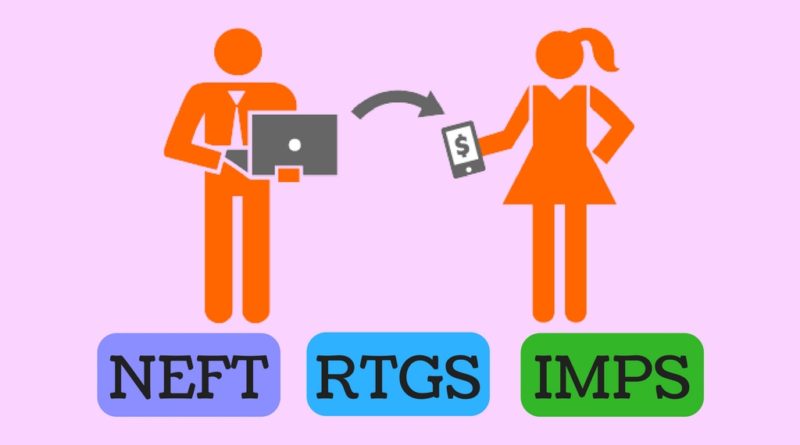Based on the value of the transaction, the speed of transfer, service availability.

Most individuals use one or the other method of online money transfer in their lifetime. The convenience of transferring money online helps an individual in making most out of the modern technology-based banking services. When it comes to transferring money from one account to another, most banks provide multiple options based on various factors and customer’s requirements. Currently, banks provide multiple transfer methods such as National Electronic Funds Transfer (NEFT), Real Time Gross Settlement (RTGS), Immediate Payment Service ( IMPS), etc. Based on the value of the transaction, the speed of transfer, service availability, and other factors, each of the transfer will provide different kinds of features and flexibility. Though each of them have their own advantages and disadvantages, they provide flexibility and convenience to the customers. Moreover, many banks have their own digital wallets to facilitate additional methods of fund transfers online.
Key Differences Between NEFT, RTGS and IMPS
Online transfer methods are subject to availability based on the customer’s eligibility and level of access granted by the bank. Additionally, the limits on fund value, timings, settlement speed, and other factors are a part of the online fund transfer method to provide a positive experience to the customer when they choose one transfer method over the other. Currently, NEFT, RTGS, and IMPS are the most popular methods of fund transfer in India, few of the notable differences between these methods are listed below:
NEFT (National Electronic Fund Transfer)- The funds transferred under this method are settled in batches (based on Deferred Net Settlement (DNS) and at a specific time of the day. If the transfer is initiative beyond the cut-off time specified by RBI, the funds are typically settled on the next working day. At present, the fund transfer requests under NEFT are processed in twelve batches between 8 a.m. to 7 p.m. on weekdays and six batches between 8 a.m. to 1 p.m. on Saturdays. Unfortunately, NEFT is not available on Sundays and bank holidays. One of the biggest advantages of NEFT is the cost-effectiveness, an individual can carry out smaller value transfers without worrying about the transaction fee and service charges. A smaller fee on the transfer enables the individual to carry out more payments which make NEFT the most popular and extensively used method for online fund transfers.
Under NEFT, the transactions can be initiated and settled from the bank account of one particular bank to another bank’s account throughout India at no additional cost apart from the standard charges, provided both the banks are a part of the NEFT transfer network (NEFT-enabled). Though some banks might have their own policies concerning the NEFT service provided by them, such as restrictions on transferring funds immediately to a newly added beneficiary, fund value limits restricting the value of transfer beyond a specified limit, etc., these protocols are proven to be effective for safeguarding the customer’s financials.
RTGS (Real Time Gross Settlement)– This type of transfer methods is applicable and available for fund transfers of a minimum of Rs.2 lakh and there is no upper limit, however, the biggest advantage for RTGS is the fastest/real-time settlement factor. As soon as the transfer instructions are sent, the fund gets settled almost immediately. However, in order to take advantage of the RTGS facility, both the originator’s and the beneficiary’s account has to be RTGS-enabled. Even though most banks are a part of the vast and popular RTGS transfer network facilitated by RBI, individuals are recommended to either get in touch with their bank directly or refer to their online banking section to discover their eligibility concerning access to RTGS payment system. The transaction fee under RTGS is higher than the other methods due to the faster settlement speed performed on an instruction by instruction basis.






























